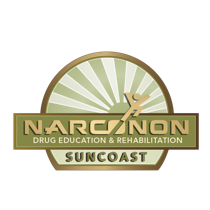Finding the Root Cause of the Addiction and Preventing Relapse

There is a common phrase associated with recovery, and it is very straightforward, “whatever you do, don’t pick up.” Not picking up is, of course, referring to not using drugs or alcohol. While this certainly seems straightforward enough, why is relapse such a prevalent part of so many people’s recovery journeys? I am not here to stigmatize people who suffer a relapse, a lot of people get it wrong before they get it right, and overcoming addiction takes a lot of hard work with the right tools, guidance, and support to be successful. Overdoses have never been more dangerous than they are in today’s climate and have accelerated even more with the COVID-19 pandemic. People with lower tolerances, which includes people who relapse after a sustained absence, have been proven to be at a higher risk of overdosing.
A part of me wishes it was a simple as telling someone don’t pick up; if it was, there would be so much less suffering in the world due to addiction. Family members would be able to lay down their ultimatums, and their loved one would simply not pick up due to the consequences. The other part of me knows the rewards that come from putting in the hard work and dedication to a better life are worth the journey. The reality is the latter, and addiction is complicated. Both before, during, and after. Therefore, the recovery journey needs to address the underlying reasons a person became dependent on substances.
For someone to be told, “whatever you do, don’t pick up, ”and for it to have weight and resonate with them, they need to first understand why they began using in the first place. Everyone has their own personality and unique circumstances in life that may have led to substance abuse. For example, a person with insecure social skills may have turned to alcohol as a way of coping with anxieties in social settings. Simply telling this person not to drink anymore does little to solve the reason they started drinking in the first place. However, if this person becomes aware that social anxieties are the reason they started drinking and that poor communication skills are the leading cause of this anxiety, now we have something to work with. That person can begin alleviating their anxiety by improving their communication skills with their peers. Now, if this person is told not to drink, they not only know why they shouldn’t, they also have the tools necessary to avoid the feeling of need.
This is just one of countless examples that can be given on why someone chooses to use substances to cope with life, often leading to far worse circumstances than why they started using in the first place. Simply telling someone not to use drugs is not enough. Recovery is about so much more than not using substances. It revolves around creating a life that is better in every way than the life lived as an addict. It involves improving relationships with the people in our lives, living in a way that promotes self-respect, living responsibly and without the addict behaviors that used to drown us out. Too many people attempting to overcome substance abuse use the white-knuckle approach, going through life with very few changes other than attempting to not use drugs or drink alcohol. This sets a person up for failure and a big reason that relapses are leaving families without their loved ones every single day.
When recovery becomes about identifying the causes of the addiction first, then creating a life beyond addiction, our lives have a much greater chance to get better. It becomes less and less about our past mistakes and more about building a better future. Relapse can then become a far less probable outcome. When we work on getting to the underlying reasons addiction became a problem in our lives, we can come up with practical solutions and alternatives that make using far less appealing. So don’t pick up, not because you know you can’t, but because you have put in the work to know why your life is so much better if you don’t.


